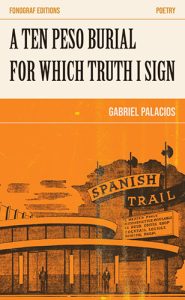Modern Life
Like the mysterious dominoes that grace the cover suggest, Matthea Harvey’s poetry collection Modern Life deals surprise and gambles sentiment, tossing out disjointed associations with such daring that only the most careful reading will unravel the whole chain of implication. Harvey puts her strongest, most readable poems in the center, creating a core of potential energy to propel the reader through the peculiar, disorienting landscapes still to come. The strategy pays off, giving the book both symmetry and a needed respite from her more difficult works.
Like the mysterious dominoes that grace the cover suggest, Matthea Harvey’s poetry collection Modern Life deals surprise and gambles sentiment, tossing out disjointed associations with such daring that only the most careful reading will unravel the whole chain of implication. Harvey puts her strongest, most readable poems in the center, creating a core of potential energy to propel the reader through the peculiar, disorienting landscapes still to come. The strategy pays off, giving the book both symmetry and a needed respite from her more difficult works.
“Implications for Modern Life” announces the book’s ambition with its jump cuts, invocations, prose-like typesetting, and outrageously obvious alliterations and rhymes. It’s also a beginner piece to her puzzles, challenging our modern comfort. In fact, our dissociation from the realities of consumption seems much graver than any cognitive gymnastics the poet may be employing. But the poet is present also, allaying that same guilt through lament, before realizing empowerment can only come after admission.
The pillars of Modern Life are two sets of abecedarian-like poems, “The Future of Terror,” and “Terror of the Future.” To generate them, Harvey selected words from her dictionary in the same place as “future” and “terror” and on the pages in between. They examine the strangeness that might arise from trying to find physical and mental security while miming life in a post-apocalyptic police state. The first set involves a good deal of consequence and action, which, coupled with Harvey’s capacity for the absurd, recalls Beckett:
They were informers all right.
Eventually we put them in a kayak and sent them
off down the river without the key word,
which despite their loquaciousness, they’d never
guess. Plus there were magnetic mines
in the river and theirs was a metal boat.
The second set, returning from “t” to “f”, has a more personal note, and one fewer than the first set, highlighting the impossibility of absolute symmetry:
The radio said we needed to repeople.
…—I professed
the principles of capillary attraction,
made you a plaster-of-Paris statue of a peacock,
wrote hundreds of haiku. The odds on you
loving me were a thousand to one, but there you were
Halving and the deception of symmetry have strong current in this collection, an example of what happens when Harvey’s meditations on simple ideas take her farther than most people find convenient.
The previously released Robo-boy series represents the most sustained focus, and perhaps the best of her fantastical realism:
Like most parents who adopt robots, / his fast-forwarded through his first three years / ….In his first real memory (a whispered, / “Honey, should we know how to turn him off, just in case?”) their / faces ripple like ponds disturbed by giant fish fighting beneath the / surface before they settle into twin grins.
The jarring and heavy poetic devices evidenced throughout highlight the artificiality she seeks to address, feeding machine-code tickertape to the ear. This is good in theory, but ultimately breaks down in practice. Harvey knows the reason too, as it drives the very poems she writes: we are not machines. Perhaps it’s a symptom of the age that a poet should feel the need to bludgeon us so, but more restraint will likely reap better reward in the future.
In all, the most striking quality of this collection is its daring. Harvey includes a two-line poem (You have my eyes / Give them back.), plays twenty-one word games with conspicuous non-skill, and leaves the reader stranded in a swamp of disjoint images. The holy grail of sustaining coherence through such a sequence is still out there, and if Matthea Harvey doesn’t fully succeed, she is perhaps much closer than the rest of us.





